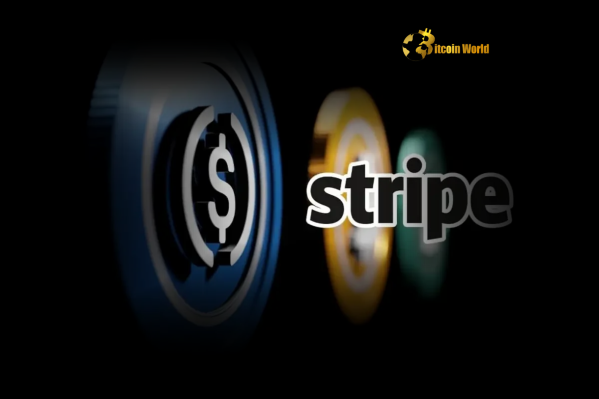BitcoinWorld

Türkiye Crypto Regulation: Unprecedented DEX Crackdown Targets PancakeSwap, Shaking Markets
The cryptocurrency world is abuzz with recent news from Türkiye, where a significant move by the Capital Markets Board (CMB) has sent ripples through the decentralized finance (DeFi) space. For the first time, a major DEX crackdown has occurred, with popular decentralized exchange PancakeSwap (CAKE) becoming the target. This unprecedented action highlights a new era of Türkiye crypto regulation, raising critical questions about the future of decentralized platforms and the impact on Turkish crypto users.
What Exactly Happened: The PancakeSwap Ban Explained?
In a landmark decision, Türkiye’s Capital Markets Board (CMB) has officially blocked access to PancakeSwap, a prominent decentralized exchange, and CryptoRadar, a crypto price comparison platform. This isn’t just a minor technicality; it’s a direct response to these platforms allegedly offering unauthorized digital asset services within the country. According to reports from Türkiye Today, this marks the very first time Turkish authorities have taken such stringent regulatory action against a decentralized platform.
The move comes on the heels of new legislative powers granted to the CMB. These powers specifically enable the board to block unlicensed foreign crypto services that are perceived to be targeting Turkish users. This shift indicates a proactive stance by Türkiye to assert control over the burgeoning crypto market within its borders, signaling a broader intent to bring all crypto-related activities under a regulatory umbrella.
Why is This DEX Crackdown Significant for the Crypto Market?
This incident is not just about a single platform; it represents a pivotal moment for the global cryptocurrency landscape, especially concerning decentralized finance (DeFi). Here’s why:
- First of its Kind: It’s the first known instance of a major nation state directly blocking a decentralized exchange. DEXs are designed to be censorship-resistant and operate without central intermediaries, making this regulatory intervention a significant challenge to their core principles.
- Regulatory Precedent: This action sets a powerful precedent. Other countries facing similar challenges in regulating their crypto markets might look to Türkiye’s approach as a model.
- Challenge to Decentralization: The very nature of a decentralized exchange is to exist beyond the reach of single points of control. Türkiye’s ability to block access, even if only at the ISP level, demonstrates that even decentralized platforms are not entirely immune to state intervention, especially concerning user access within national borders.
- Impact on User Access: While VPNs and other circumvention methods exist, a direct block makes it significantly harder for average Turkish crypto users to access these platforms, potentially pushing them towards regulated, centralized alternatives or into less secure avenues.
How Will This Affect Turkish Crypto Users and the Local Market?
The immediate impact on Turkish crypto users is clear: direct access to PancakeSwap is now restricted. This could lead to several shifts within the local crypto market:
- Shift to Centralized Exchanges: Users might gravitate towards centralized exchanges (CEXs) that are either licensed or tolerated by Turkish authorities. This could increase trading volume on platforms like Binance TR or Paribu, which operate within a more defined regulatory framework.
- Increased Demand for VPNs: Savvy users might resort to Virtual Private Networks (VPNs) to bypass geographical restrictions, though this comes with its own set of security and legal risks.
- Reduced DeFi Participation: The ease of access to DeFi protocols might decrease, potentially stifling innovation and participation in the decentralized ecosystem among Turkish citizens. This could limit their access to various DeFi services, from yield farming to liquidity provision, which are hallmarks of a decentralized exchange.
- Regulatory Clarity (or Lack Thereof): While the ban brings a form of regulatory action, it also creates uncertainty. Users and businesses might become more cautious about engaging with platforms that could suddenly face a similar ban.
Table: Centralized vs. Decentralized Exchanges in Light of New Regulations
| Feature | Centralized Exchange (CEX) | Decentralized Exchange (DEX) |
|---|---|---|
| Control | Centralized entity (company) | Smart contracts, community |
| KYC/AML | Typically required | Generally not required |
| Security Risks | Hacks of central server; custodian risk | Smart contract vulnerabilities; user error |
| Regulatory Vulnerability | High; easily targeted by regulators | Lower; harder to shut down directly, but access can be blocked |
| Accessibility (Post-Ban) | Likely remains accessible if licensed | Access restricted via ISP blocks (e.g., PancakeSwap ban) |
What Does This Mean for the Future of Decentralized Exchange Platforms Globally?
The PancakeSwap ban is a stark reminder that even the most decentralized platforms are not entirely immune to the long arm of national regulations. Analysts are already speculating about the domino effect this could have. Other major DEXs, such as Uniswap, Raydium, and Curve Finance, could potentially be next on the list for similar actions in Türkiye or elsewhere. This raises fundamental questions about the balance between innovation and regulation in the crypto space.
This event underscores a growing trend: governments worldwide are grappling with how to regulate crypto. While some are embracing it, others, like Türkiye, are opting for stricter control. This is not necessarily a sign of hostility towards crypto itself, but rather an attempt to bring it under existing financial oversight frameworks, particularly concerning consumer protection, anti-money laundering (AML), and tax compliance.
The challenge for regulators lies in adapting traditional frameworks to a technology that fundamentally seeks to bypass intermediaries. For DeFi developers, the challenge is to build truly resilient and accessible platforms that can navigate an increasingly complex global regulatory landscape.
Actionable Insights for Crypto Enthusiasts and Businesses
In light of this evolving situation, here are some key takeaways:
- Stay Informed: Keep a close eye on regulatory developments in your region and others. Türkiye crypto regulation is a prime example of how quickly things can change.
- Diversify Access: Don’t rely solely on one type of platform. Understand the differences between CEXs and DEXs and use them appropriately based on your needs and risk tolerance.
- Prioritize Security: If using decentralized platforms, ensure you understand how to manage your own keys and secure your wallets. Be wary of using unofficial methods to bypass blocks, as they can expose you to scams or malware.
- Advocate for Sensible Regulation: Participate in discussions about crypto regulation. Balanced regulations can foster innovation while protecting users.
The incident with PancakeSwap ban serves as a crucial wake-up call for the entire decentralized finance ecosystem. It highlights the ongoing tension between the inherently borderless and permissionless nature of blockchain technology and the desire of nation-states to maintain control over financial activities within their jurisdictions.
Concluding Thoughts: Navigating the Future of Crypto Regulation
Türkiye’s decision to block PancakeSwap is a landmark event, marking a new chapter in the global conversation about crypto regulation. It signals a more assertive approach from national authorities towards decentralized platforms, challenging the long-held belief that DEXs are immune to regulatory oversight. While this DEX crackdown might pose immediate hurdles for Turkish crypto users and the broader DeFi community, it also accelerates the need for clear, balanced, and globally coordinated regulatory frameworks.
The future of the decentralized exchange landscape will undoubtedly be shaped by how these regulatory challenges are addressed. It’s a complex dance between innovation, user freedom, and national sovereignty. As the crypto market matures, expect more such actions, pushing the industry to adapt and evolve in unprecedented ways.
To learn more about the latest crypto market trends and the evolving landscape of Türkiye crypto regulation, explore our article on key developments shaping the future of decentralized finance and digital asset services.
This post Türkiye Crypto Regulation: Unprecedented DEX Crackdown Targets PancakeSwap, Shaking Markets first appeared on BitcoinWorld and is written by Editorial Team





